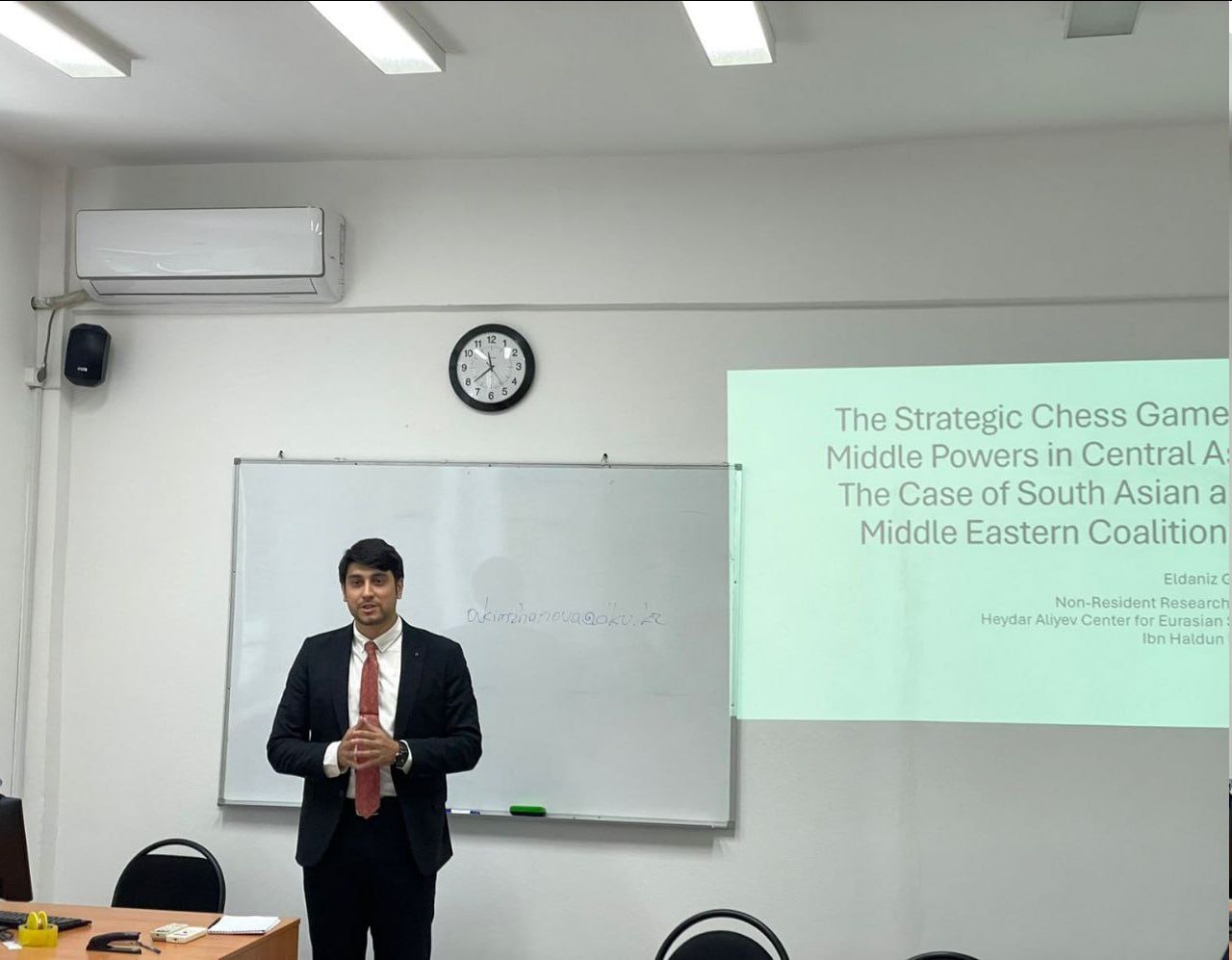From September 6 to 8, a research fellow from the Heydar Aliyev Eurasian Studies Center at Ibn Haldun University and co-founder of the political foresight agency "Nightingale Intelligence International" participated in a conference organized by the Kazakh-German University in collaboration with DAAD and the German Foreign Ministry. One of my most interesting posts on this Telegram channel focused on the emergence of two new coalitions of middle powers in Central Asia, formed by representatives from the Middle East and South Asia. Building on this, Huseynov decided to delve deeper into the topic and presented some preliminary findings at the conference.

An exciting geopolitical chess game is unfolding in Central Asia, involving not only global powers but also middle powers such as India, Iran, the Gulf States, and Pakistan. This complex dynamic is transforming the region and strengthening ties across Greater Eurasia, which includes Central Asia, South Asia (particularly Pakistan and India), the Gulf States, Iran, and the Caucasus.
At the heart of this geopolitical transformation lie two key projects reshaping regional connectivity:
1. The North-South Transport Corridor – Passing through Iranian ports, this corridor enhances India's trade routes to Central Asia, bypassing Pakistan.
2. The Trans-Afghan Railway – Opens Central Asia's access to Pakistan's ports, attracting significant investment from the Gulf States.
In this new scenario, competition for influence and resources in Central Asia is intensifying, with the chessboard divided into two main coalitions:
Team 1: India and Iran
India has signed a long-term agreement with Iran to develop the Chabahar Port, allowing it to bypass Pakistan and access Afghanistan and Central Asia. The current focus is on improving transport infrastructure within Iran to strengthen this trade route.
Team 2: Gulf States and Pakistan
The Gulf States, especially the UAE and Qatar, have shown significant interest in developing Pakistani ports like Gwadar and supporting the Trans-Afghan Railway. This cooperation enhances Pakistan's role in the region and provides the Gulf States with access to Central Asia’s rare-earth elements, crucial for technological development.
Traditionally, global powers such as the EU, Russia, and China have dominated Central Asia. However, the emergence of these new coalitions suggests a shift in the region’s dynamics. India, Iran, the Gulf States, and Pakistan are now actively shaping the future of Central Asia, pursuing various economic and geopolitical interests.
As these projects progress, increased cooperation and competition among these states are expected, accelerating the development of Greater Eurasia. While India and the Gulf States are targeting different economic niches in Central Asia, this "chess game" will inevitably diversify and strengthen the region’s economic landscape.
Written by: Eldaniz Gusseinov
Eldaniz Gusseinov, is a Non-Resident Research Fellow at Haydar Aliyev Center for Eurasian Studies of the Ibn Haldun University, Istanbul.
Follow Daryo's official Instagram and Twitter pages to keep current on world news.
Comments (0)